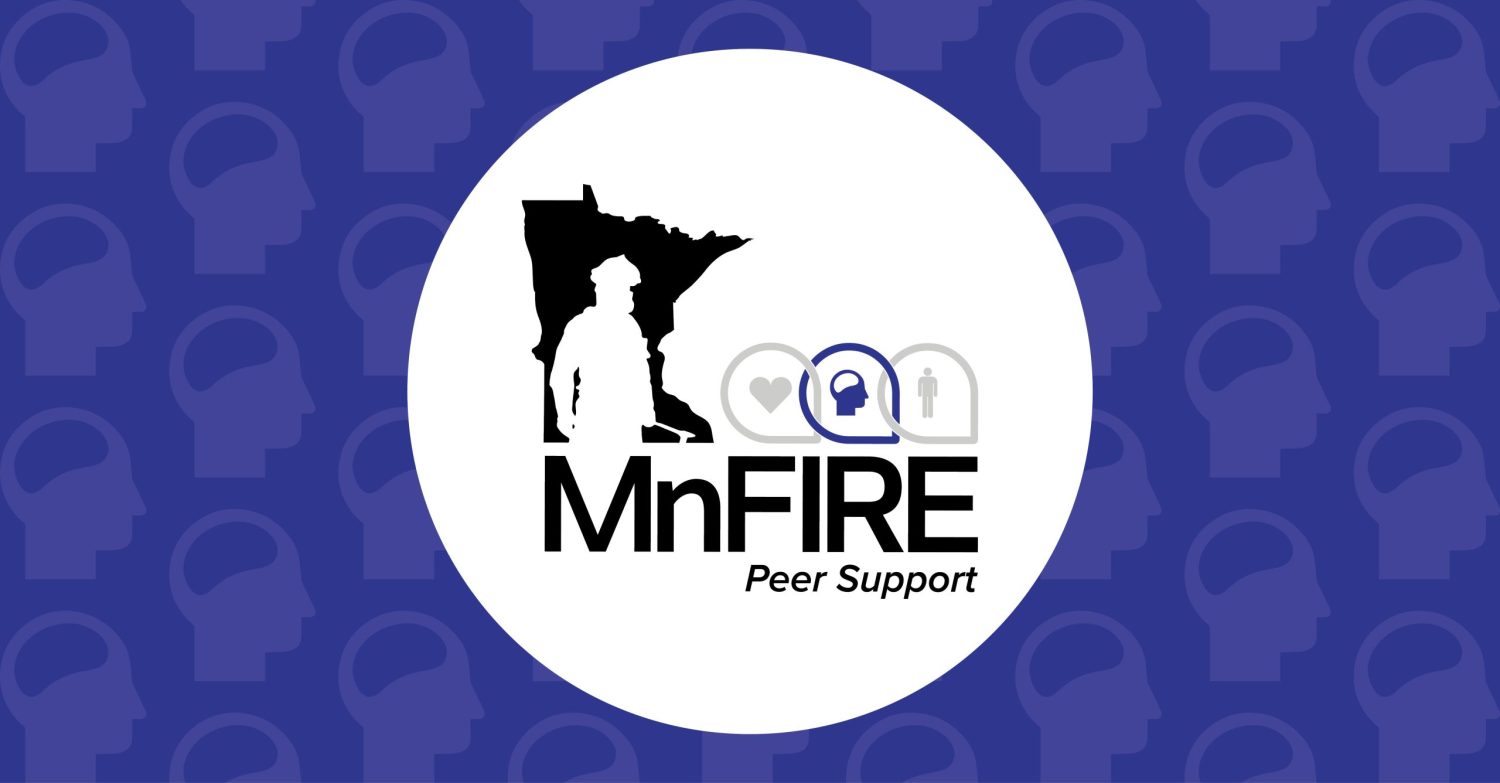Our peer supporters are the backbone of the MnFIRE Assistance Program. By matching firefighters with someone who has experienced the same struggles, we’re making it easier for folks to get the emotional support they need while reducing the stigma around talking about mental health and suicide that has historically pervaded the fire service.
But who are these peer supporters, and what is it actually like when you call them?
We sat down for an interview with one of our MnFIRE peer supporters, Angeline (Ange) Appelholm from the South Metro Fire Department, so you can get a glimpse into the people behind this important, life-saving Peer Support program.

Tell us a little about yourself, your history with the fire service and who you are outside of your role as a firefighter?
I currently work in the prevention division at South Metro Fire Department, where I’ve been for 10 years — with the first eight years working on the streets. I joined MnFIRE in 2020 and also volunteer with the Metro CISM team. Outside of my role in the fire industry, I have been married to my husband for eleven years and we have two small kids who keep us busy. The warmer months are spent outdoors, and I love to travel! Health and wellness are extremely important to me, and you can find me in the yoga studio when I have free time.
Why did you become a MnFIRE peer supporter?
After seeing one of my own members at my department battling mental health issues, it became apparent to me that those of us in the industry needed to be the ones making the change and I wanted to be a part of it. MnFIRE was the perfect place for me to start that journey.
What is the most rewarding part of being a peer supporter?
The most rewarding part for me is making a connection with someone who I maybe would have never met before. Part of MnFIRE’s process is connecting you with like-minded people or putting you in touch with someone who has been in your shoes. Even though I’m the peer supporter, the connection goes both ways for me. The fire industry is unique and not easily understood by those not in it and this is a great opportunity for our industry to come together as one big family.
What is the most surprising part of being a peer supporter?
The most surprising aspect for me is that there are so many others out there who have walked a similar path as I have. When you utilize the Peer Support side of MnFIRE, they aim to pair you with someone who has shared experiences. I think this is one of the many reasons that MnFIRE is so successful.
What do you see as the most valuable component of the MnFIRE Hometown Heroes Assistance Program (HHAP)?
I truly think the mental health resources of the HHAP are the most valuable. Mental health in our industry has been overlooked for so long and having something in place for past, current and future generation firefighters is only going to help make this a more sustainable career. No one in the fire industry needs to carry their burdens alone and MnFIRE has made it possible to access mental health care comfortably.
What two suggestions would you share with every Minnesota firefighter to improve their mental health?
MnFIRE has done a great job at teaching the fire industry the signs and symptoms of mental and emotional distress. Some of these signs and symptoms can sneak up on you so just paying attention to what your body needs at the moment is really important. Shift work makes it hard but sticking to a routine as best as possible is so beneficial for our mental health. Also, having your support network intact will be so valuable to you as a firefighter. Having at least one or two people who you trust and who are available at any given hour is essential.
Want to talk to a peer supporter?
Call our 24-hour hotline at 888-784-6634. All calls are answered live, 24/7, by experienced mental health professionals, and they can match you with a peer supporter who has had similar life experiences. You can also get connected with a peer supporter using the new MnFIRE PeerConnect app.








